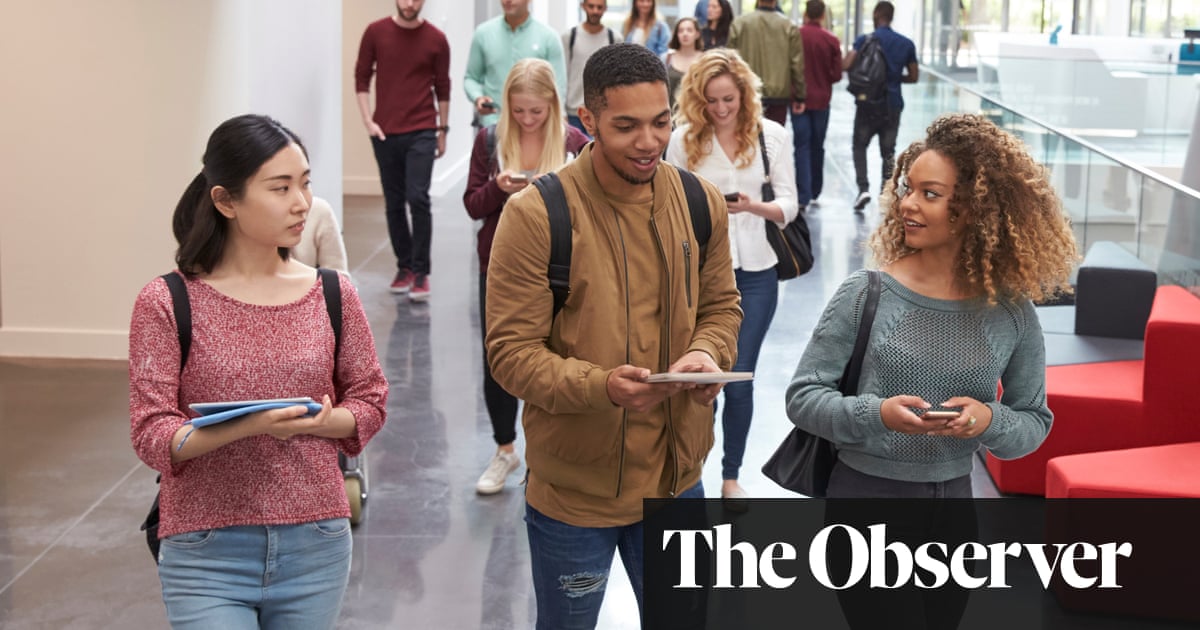Maybe that’s the plan?
No maybe about it OP. They’ve been trying various different methods to invalidate the young vote. That’s a time bomb, as those young people become middle aged they’re going to have to resort to even worse means of suppression.
What “young vote”?
The majority don’t bother.
A lot of people under 30 feel that none of the parties represent them in the least. Personally I just suck it up and vote for whoever seems the least shitty.
And then complain loudly on social media that they don’t have a voice.
It’s almost as if those are likely not the same person, considering we’re talking about a grouping that contains millions
One of the reasons BoJo called for an election on the 19th December for sure. Lots of students are at home rather than at university and it can be a real pain in the arse to move that stuff around at short notice.
They’ve definitely fired up the number-crunch-omatic-4000 to calculate the dates that
disenfranchise fewer conservatives compared to othersbest suit the voting public.Of course it’s the plan.
This is bad, potentially they should reconsider the election date.
However I think there is a deeper issue here where young people disenfranchise themselves by not voting. Both major parties are pitching all of their policies to OAPs because they are the most consistent portion of the electorate to turn out at the polls.
I remember during my masters degree asking the other students at the pub who had voted in the local elections that day and it was literally just me out of ~20 people! Obviously general elections are different but if you don’t participate in the system it won’t cater to you.
That’s why I hate it when people my age don’t vote. They’re obviously not going to care about you if you won’t bother heading down to the polling station.
Young people may disenfranchise themselves for other reasons but so does the system itself when you don’t want a main party. Voting 3rd party has the same affect as staying up late and sleeping in on the day.
Unable to vote? Are they ineligible for postal votes?
Maybe I should read the article 🤣.
Edit:
They also say that an October election – potentially just two or three weeks after freshers’ week in many university towns – would not leave local councils enough time to put many thousands of new student addresses on the electoral register.
Oh ok that makes more sense. In that case register before you go to uni and do a postal vote. It just depends how much you care about voting Vs being young and care free. I know I wouldn’t have bothered (and didn’t) until after university anyways.
This is the best summary I could come up with:
Jeremy Hunt, the chancellor, last week hinted at a possible election October date during questioning by a House of Lords select committee.
Paul Greatrix, registrar of the University of Nottingham, told the Observer that if an election was called for mid-October he did not think the data could be processed in time.
With data suggesting that thousands of student voters had fallen off the electoral roll as a result of the new rules, many universities have introduced a system to sign students up automatically.
This requires every student to tick a box when they enrol at the university at the start of each year if they want their details to be passed on to their local council to register them to vote.
Nick Hillman, director of the Higher Education Policy Institute (Hepi) think tank, said: “You now need to be pretty organised to apply for ID and register to vote in time, and not many young people on the cusp of a major change in their lives will be.”
Students have proved decisive in some university towns, for instance helping Labour to win both Canterbury and Leeds North West in 2017 and hold them in 2019.
The original article contains 678 words, the summary contains 195 words. Saved 71%. I’m a bot and I’m open source!
I love how it’s always the government’s fault if people can’t be arsed to register to vote.
It literally takes five minutes. If you were actually bothered, you would make sure to do it.
You think it’s perfectly fine behaviour if the standing government goes out of it’s way to call an election at a time that is widely regarded to be a bad time for a large portion of the electorate to get to the polls?
People should absolutely register to vote. However the government should be called out for what is essentially just an attempt to make life difficult for a group of people who pretty significantly don’t tend to vote for them.
I think you’re exaggerating the impact this age group has on elections.
Most of them don’t even bother to go and vote. This is precisely why the government doesn’t do anything for them. It’s also not going to be a consideration for the timing of the election for the same reason.
- the government’s not doing it
- and if they are, it doesn’t matter
- and if it matters, they deserved it
you just went through all three of these stages in the space of two comments good job
A government shouldn’t disenfranchise voters. If someone’s not gonna vote, that’s entirely their choice, but no one else should make that choice for them.
Last election In my constituency the right where complainingthat Labour won because it was a GOOD time for the students to vote.
We have 3 universities.
The population of the city significantly drops during university holidays.
So yes, it can make quite a big difference.
No, it’s the government’s fault for aiming to schedule an election at a highly abnormal time, which would disproportionately affect students, with no reasoning that I’ve seen given for the choice. Based on that, I’m definitely going to blame the government for what appears to be a blatant attempt to reduce the number of student voters (a demographic which, despite relatively low turnout rates to begin with, are overwhelmingly more likely to vote for Labour)
schedule an election at a highly abnormal time
There were October elections in 1924, 31, 51, 59, 64, 74. I’m sure the motives behind this aren’t good, but before Thatcher it was a common time to hold elections.
At least 4 out of 6 of those elections happened because of abnormal circumstances.
-
The 1924 election was because of a vote of no confidence that triggered an early election
-
The 1931 election took place only two years after the previous election, because of a cabinet deadlock around spending cuts.
-
The 1951 election was a snap election, called only 20 months after the previous election, because Labour hoped to increase the slim majority they had (it was a hilariously bad move, they lost by a landslide)
-
I can’t find specific reasons why the 1959 election was in October, so I’ll count that as a mark in the “a normal October election” column. Ditto for 1964, which seems to have been in October because '59 one was, and there were leadership elections within both parties In 1963.
-
The 1974 election was the second one to be held that year and happened because the previous election resulted in a hung parliament
That being said, digging through the list of UK general elections for this comment made me realise that there’s so much disruption in the history of UK elections that it’s probably not useful for me to have used the word “abnormal”, because what even is normal when disruption seems to be the norm.
Despite this, I’m even more dubious of the choice of when an election will be held because it’s pretty clear that the precedent is that the timing is usually a deliberate and strategic choice - calling an election when you think you’re going to win is just standard practice, it seems. However, I still have beef with an October election if it happens, because in my opinion, that would be disproportionately affecting a particular voting demographic in a way that feels undemocratic beyond what is usual for the (sometimes slimy) tactic of strategic timing
(Edit: though also, I want to be clear, thank you for your comment — I learnt a lot while building my reply, which I appreciate. I hope I do not come across as overly adversarial)
-
Does it take five minutes for the council to verify thousands of registration forms?












